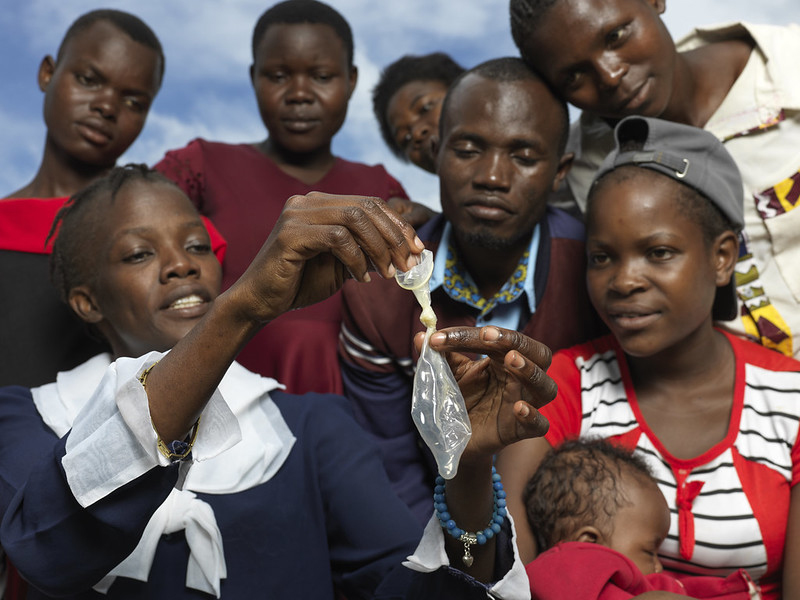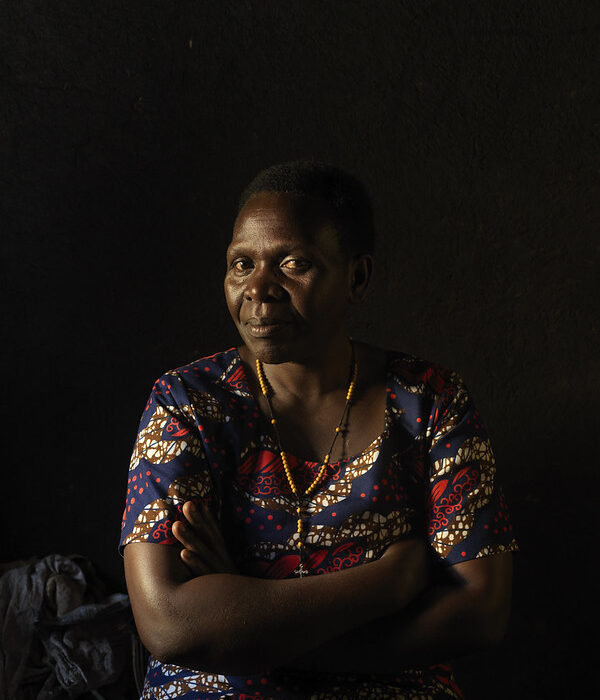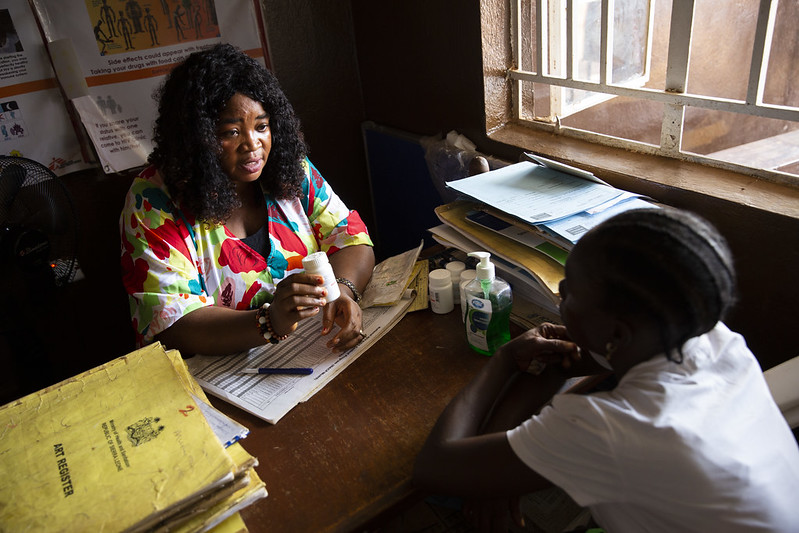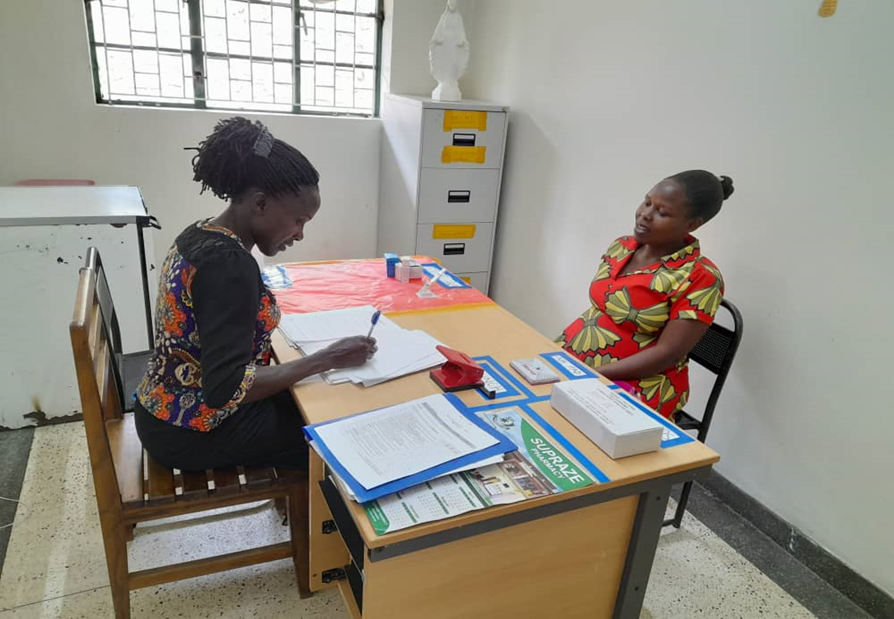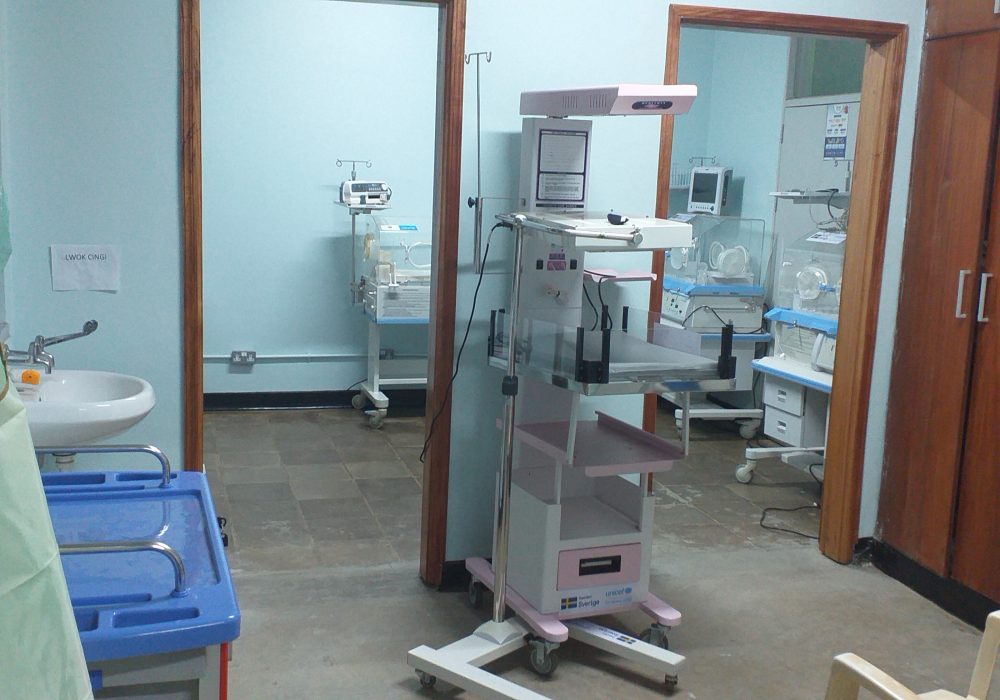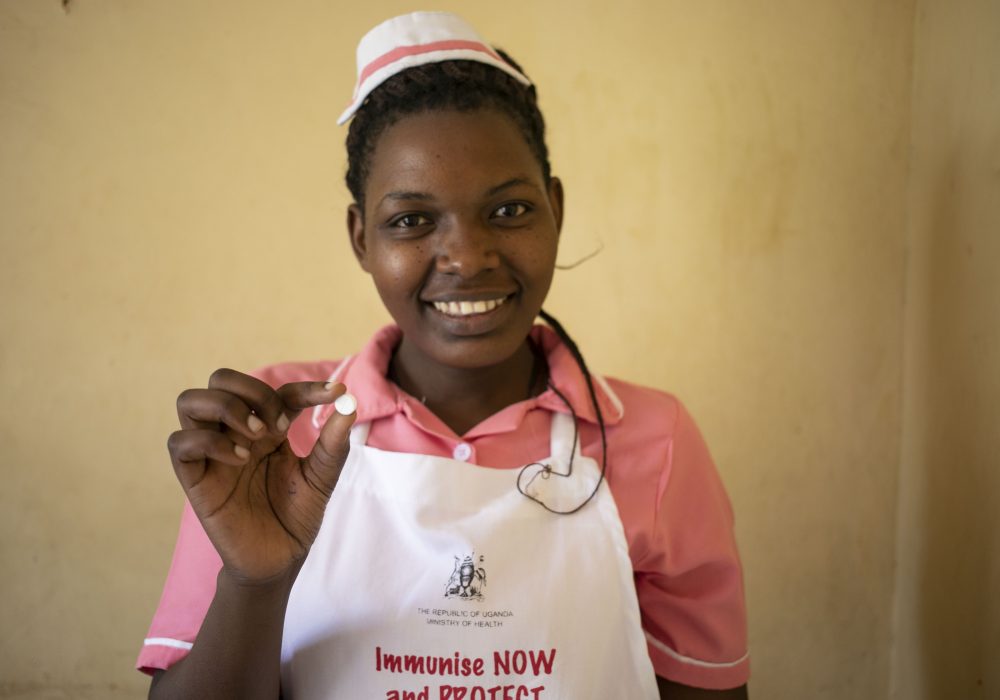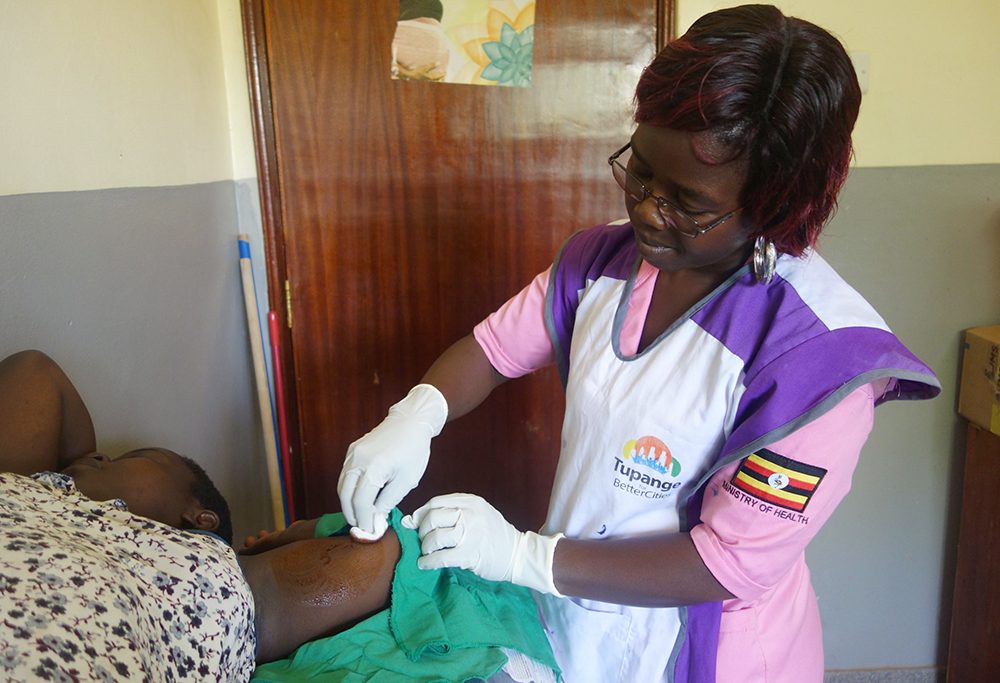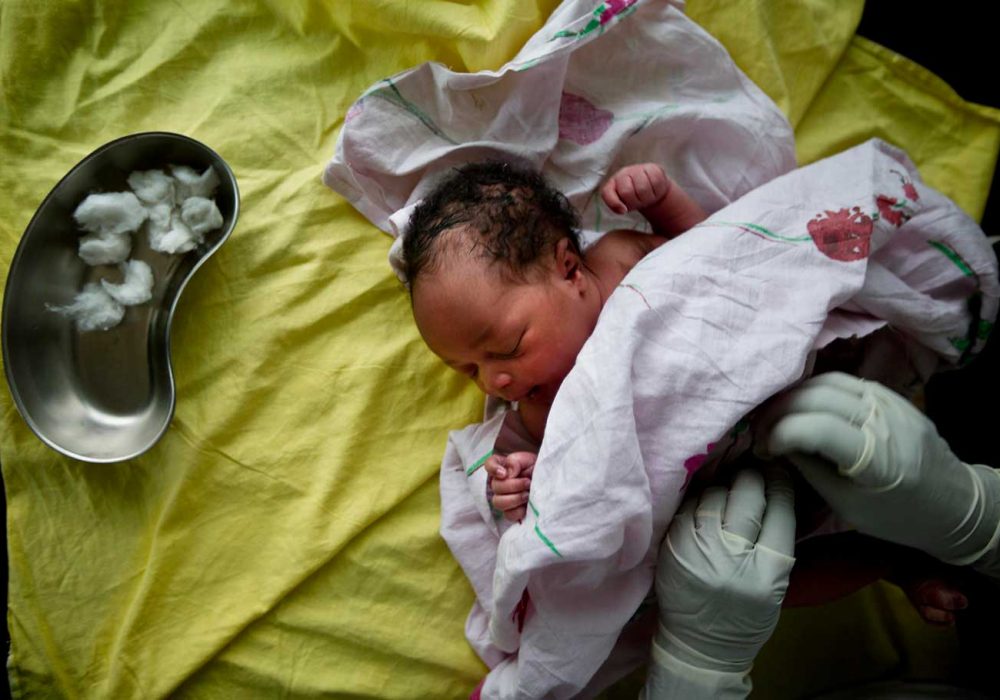Uganda


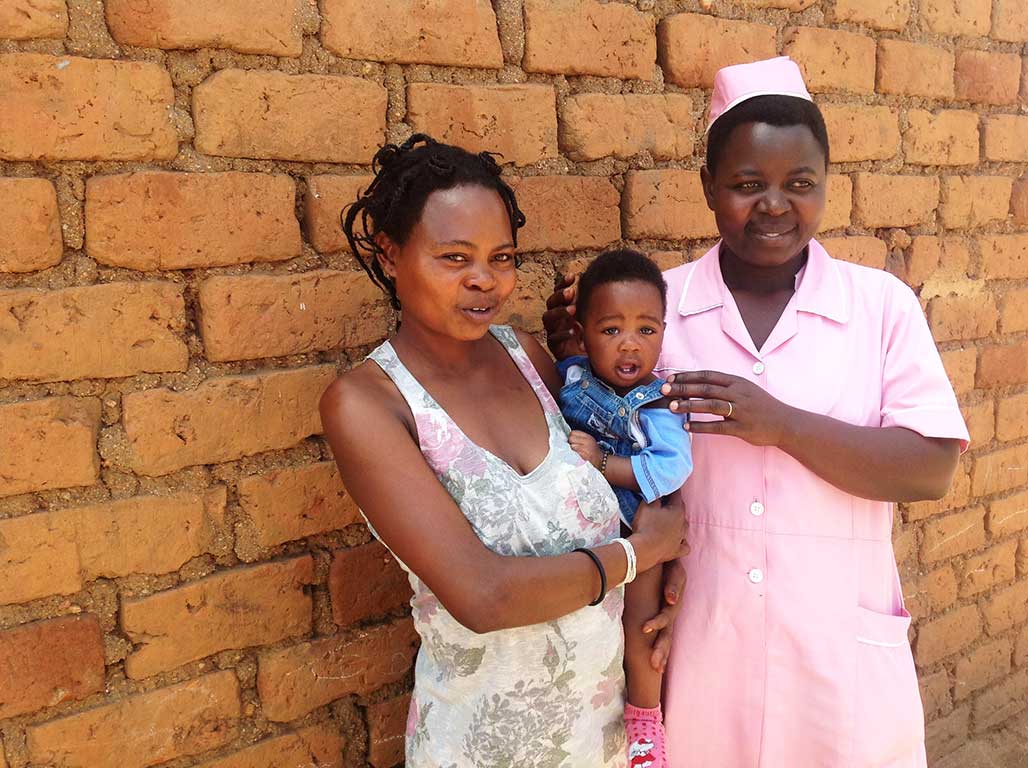
Country Contact
Martin Ndifuna, Country Director
Tel. 256.393.202.937
Plot 8 Circular Drive Ministers’ Village Ntinda
Kampala, Uganda
Current and Recent Donors
Bayer
Bill & Melinda Gates Foundation
Gavi, the Vaccine Alliance
Health Resources and Services Administration
UNICEF
University of New Mexico
UNFPA
USAID
U.S. Centers for Disease Control and Prevention
World Bank
Increasing access to quality health care since the 1980s.
- Based on Jhpiego’s successful implementation of the low-dose, high-frequency (LDHF) learning approach, the Ugandan Ministry of Health adopted LDHF as the preferred alternative training approach; LDHF was used to build the capacity of more than 5,000 health care personnel who attended more than 13,000 deliveries at Ministry of Health sites.
- Through the Health Resources and Services Administration-funded Skills Sharing Project, Jhpiego supported virtual technical assistance sessions among Ugandan and U.S. health care providers.
- Jhpiego supported health facilities to implement quality improvement activities, including strengthening malaria commodities’ supply chain and logistics management—resulting in reduction of treatment of malaria-negative cases from 47% in 2016 to 2% in 2020.
- Jhpiego’s support to contraceptive method mix services translated to more than 61,000 delayed or avoided pregnancies in fiscal years 2020/21.
Our Technical Areas in Uganda
Our Work in Uganda
Global Reach II
The U.S. President’s Emergency Plan for AIDS Relief, has delivered remarkable lifesaving results, with several countries approaching UNAIDS 95-95-95 goals for HIV epidemic control. As countries like Uganda come closer to their targets, challenges to close the remaining gaps and cross the “last mile” become more difficult, requiring innovative, targeted approaches to ensure equity and extend services to the hardest-to reach populations and underserved areas. Global Reach II is a five-year project that supports the delivery of effective solutions to address these challenges in country-level HIV responses, adapting to the country contexts. Funded through the U.S. Health Resources and Services Administration (HRSA), Jhpiego leads the project with the following partners: University of California San Francisco, International Treatment Preparedness Coalition, Project ECHO, African Forum for Research and Education in Health (AFREhealth), Johns Hopkins University Center for Global Health and Ata Health Strategies.
The Challenge Initiative (TCI) NextGen
As the implementing partner responsible for leading TCI’s East Africa Accelerator Hub, Jhpiego provides technical assistance to local governments in Kenya, Tanzania and Uganda as they implement interventions in family planning and adolescent and youth sexual and reproductive health. The goal of TCI NextGen, which builds on the previous TCI initiative, is to increase access to modern contraception for urban poor women. This project is funded by the Bill & Melinda Gates Institute for Population and Reproductive Health and Bayer AG.
Enhancing Global Health Security: Expanding Efforts and Strategies to Protect and Improve Public Health Globally
Funded by the U.S. Centers for Disease Control and Prevention (CDC), this five-year project builds upon activities funded by CDC to support Global Health Security through implementation of programs and activities that focus on protecting and improving health globally through partnerships with Ministries of Health and other institutions. With an initial emphasis on addressing the COVID-19 pandemic, the project is supporting countries—including Uganda—and carrying out regional work in West Africa and South America to improve prevention of avoidable epidemics, including naturally occurring outbreaks and intentional or accidental releases of dangerous pathogens, and to improve ability to detect threats early and respond rapidly and effectively to public health threats of international concern. The project is being implemented by a Jhpiego-led consortium that includes the Johns Hopkins Center for Health Security, the Johns Hopkins University Applied Physics Laboratory, Global Scientific Solutions for Health, and Johns Hopkins University Center for Global Health.
MOMENTUM Country and Global Leadership
Moving Integrated, Quality Maternal, Newborn and Child Health and Family Planning and Reproductive Health Services to Scale (MOMENTUM) is a suite of projects, funded by the U.S. Agency for International Development, that aims to accelerate reductions in maternal, newborn and child mortality and morbidity in high-burden countries by increasing host country commitment and capacity to provide high-quality, integrated health care. Each of the projects has a specific focus area; together they provide a comprehensive, flexible package of support for countries as they overcome context-specific health challenges towards sustainable development. The five-year, Jhpiego-led MOMENTUM Country and Global Leadership project focuses on: 1) providing targeted technical and capacity development assistance to our missions, partner countries and local organizations; and 2) contributing to global technical leadership and policy dialogue for improved maternal, newborn and child health, voluntary family planning and reproductive health outcomes. Jhpiego’s 12 sub-partners under this project are: Save the Children, Johns Hopkins University International Vaccine Access Center, The Manoff Group, Quicksand, Matchboxology, BAO Systems, Avenir Health, McKinsey and Company, PACT, Institute for Healthcare Improvement, Christian Connections for International Health and Ubora Quality Institute.
In Uganda, this award is supporting Mbarara University of Science and Technology (MUST) to implement scale-up of their study on the Augmented Infant Resuscitator device, an add-on device to neonatal resuscitation equipment that gives real-time ventilation performance feedback for enhanced training and quality improvement of neonatal resuscitation. Currently, MUST is conducting a feasibility and acceptability evaluation of this device in Kenya and India.
Learning and Performance Management
Gavi, the Vaccine Initiative, is supporting the Uganda National Expanded Program on Immunization to transition away from a heavy reliance on classroom-based training and supportive supervision toward increased use of more impactful, multi-modal learning and performance management (LPM) approaches, some of which are digitally supported. Jhpiego provides direct side-by-side support to this transition process, including supporting the creation, planning or implementation of LPM-related investments in the Gavi Full Proposal Process or Equity Accelerator Fund and supporting monitoring, evaluation and learning afforts around both the new approaches and the process used to support the transition.
The Tele-mentoring, Equity and Advocacy Collaboration for Health through Antimicrobial Stewardship
The goal of this project is to improve antimicrobial resistance (AMR) surveillance capabilities and infrastructure in order to inform appropriate use of antimicrobials. The project has supported the establishment of the AMR ECHO—held bi-weekly led by the Ministry of Health—and rejuvenated the medicines and therapeutic committee to provide oversight of antimicrobial rational use. This initiative is a Pfizer-funded program through the University of New Mexico.
The people we serve
Country Contact
Martin Ndifuna, Country Director
Tel. 256.393.202.937
Plot 8 Circular Drive Ministers’ Village Ntinda
Kampala, Uganda
Current and Recent Donors
Bayer
Bill & Melinda Gates Foundation
Gavi, the Vaccine Alliance
Health Resources and Services Administration
UNICEF
University of New Mexico
UNFPA
USAID
U.S. Centers for Disease Control and Prevention
World Bank





